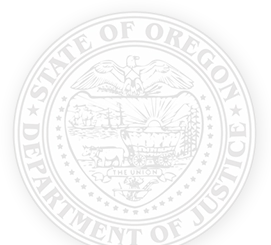Attorney General Ellen Rosenblum today released a list of her policy priorities for the upcoming 2019 Oregon Legislative Session, which starts January 22, 2019.
“While the Oregon Department of Justice works on a variety of bills each legislative session, there are a few policy areas that are especially meaningful to me. I plan to focus on expanding protections for students, consumers and vulnerable Oregonians. We want to build off of the success of the last two legislative sessions, when we were able to help pass landmark legislation in areas including data breach, discriminatory profiling, privacy and student debt,” said Attorney General Rosenblum. “Last, but definitely not least, I will work to address Oregon’s increasing incidents of hate-motivated conduct occurring in all parts of our state. I look forward to working with the Oregon Legislature to accomplish most, if not all, of these goals. “
Hate Crimes:
In May, 2018 Attorney General Rosenblum convened a statewide task force on hate crimes. The task force met regularly and also travelled the state to hear from Oregonians impacted by hate-motivated conduct.
The task force is working on a bill that will strengthen Oregon’s existing hate crimes laws by improving data collection, providing additional services to victims and rebalancing criminal penalties to more effectively discourage acts of hate and bigotry.
Gun Safety:
3-D printed firearms cannot be detected by a metal detector, making them the ideal firearm to sneak by security systems. The danger posed by these undetectable devices is significant, and will only grow as the technology around 3-D printing improves. Oregon needs to join with other states in taking strong action against these devices.
Internet of Things:
The “Internet of Things” is a common term which refers to the billions of devices – from toasters to televisions – that are now connected to the internet. These devices have the potential to provide hackers with a new method to defraud consumers, acquire deeply personal information and commit cybercrimes. The proposed legislation will require manufacturers to equip their products with reasonable security features that protect consumers’ private information and protect them from being improperly accessed or used. Violators would face penalties under Oregon’s Unlawful Trade Practices Act.
Kaylee’s Law:
Kaylee’s law is named for a young woman, Kaylee Sawyer, who was killed by a Central Oregon Community College security guard in 2016. Her tragic death highlighted the sometimes blurry lines between campus police and fully certified law enforcement.
The Attorney General joins the Oregon Association of Chiefs of Police, Oregon State Sheriffs Association, Oregon District Attorneys Association, Oregon Students Association and the family of Kaylee Sawyer in introducing “Kaylee’s Law.” Kaylee’s law would clarify the limits of the powers provided to college security officers, and require that their uniforms and vehicles look meaningfully different than the vehicles of traditional law enforcement. The bill would also require campus security to install common-sense security features which would protect the students in their care, and require a more detailed background check be conducted before hiring these sensitive personnel.
Student Debt:
Student debt is the second-highest debt load for Oregonians, with ever-rising burdens from this debt placed on older Oregonians. The companies that service these student loans have been known to steer borrowers in detrimental directions and not to have the borrower’s best interests at heart. This proposal would create a student loan ombudsperson to help educate and counsel student loan borrowers, who face complex systems of repayment. The bill also requires student loan servicers to maintain a license from the Department of Consumer and Business Services which would monitor, and, if necessary, sanction servicers of student loans.
Towing:
Towing is a consistently high area of consumer complaints, yet the industry lacks a centralized accountability mechanism to punish bad actors. This bill, which would create an Oregon Board of Towing, is the result of a workgroup convened by the Oregon Department of Justice with members of the towing industry. This board, comprised of members of the towing industry, law enforcement, consumer advocates and relevant agencies, would address complaints and conduct investigations related to the towing of vehicles, and impose disciplinary action when needed.
Data Breach:
The Attorney General partnered in 2017 and 2018 with legislative leaders to make needed refinements to Oregon’s data breach laws in the wake of large data breaches like the Equifax breach. A few refinements remain to help bolster protection of Oregonians’ personal information. This bill updates the 2018 law by modifying consumer notice of data breach to make the most sense to the consumer and update the definition of “personal information” to include usernames and passwords so that companies need to protect that information. It also closes a loophole regarding personal information that federal law fails to protect.
The Oregon Department of Justice (DOJ) is led by Attorney General Ellen Rosenblum, and serves as the state’s law firm. The Oregon DOJ advocates for and protects all Oregonians, especially the most vulnerable, such as children and seniors.
